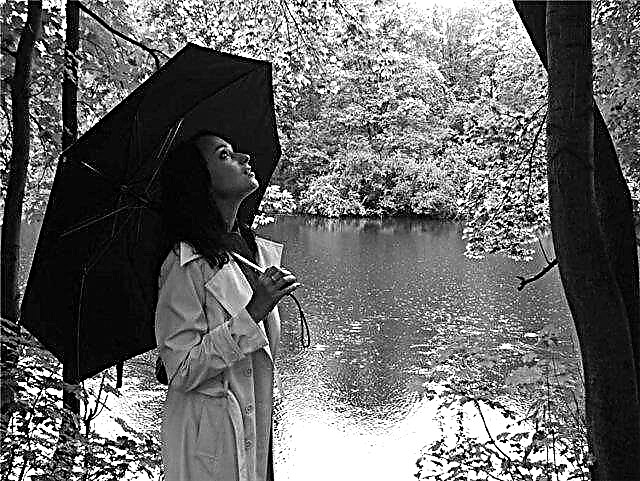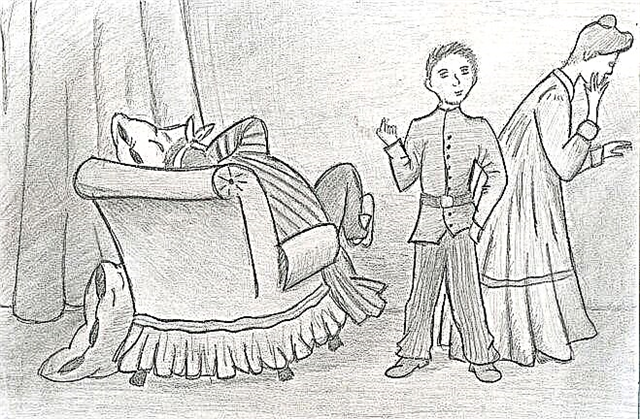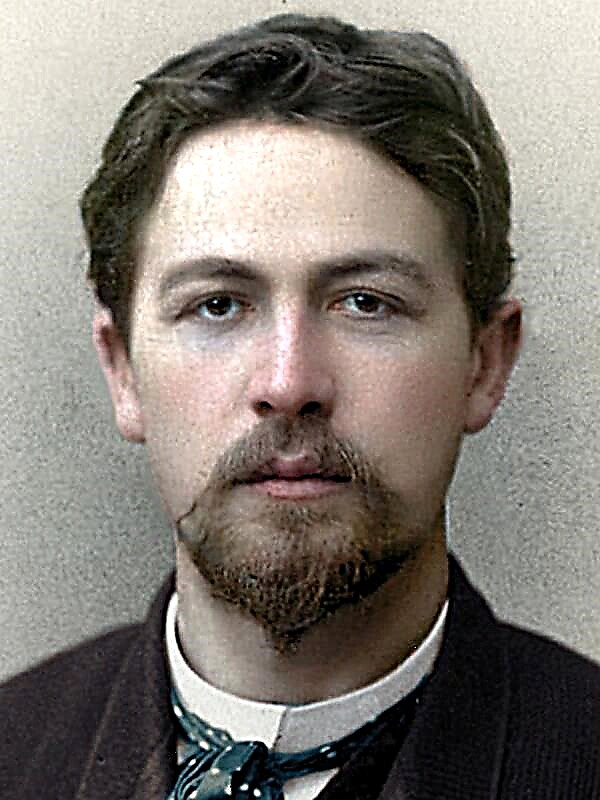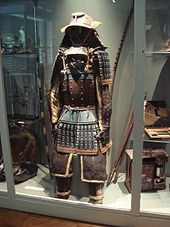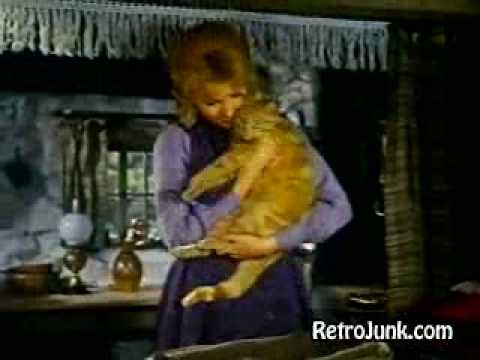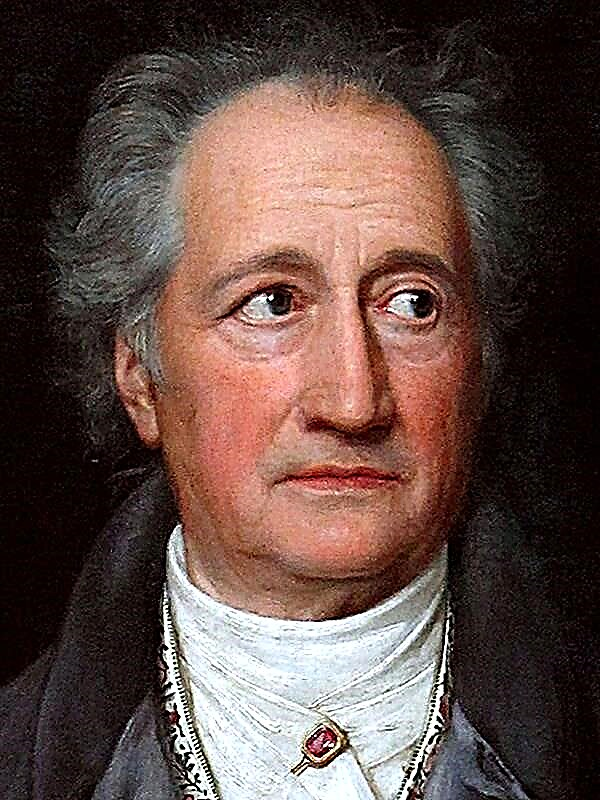The scene is Bonn, the time of the action approximately coincides with the date of creation of the novel. The story itself is a long monologue by Hans Schnier, a comic actor or, simply, a clown.
Hans is twenty-seven years old, and he recently suffered the hardest blow of fate - he left him to marry Zupfner, “this Catholic,” Marie, his first and only love. Hans's deplorable situation is compounded by the fact that after Marie left, he began to drink, which is why he began to work carelessly, and this instantly affected his earnings. Moreover, the day before, in Bochum, portraying Charlie Chaplin, he slipped and injured his knee. The money received for this performance was barely enough for him to get home.
The apartment is ready for the arrival of Hans, this was taken care of by his acquaintance, Monica Silve, warned by telegram. Hans hardly overcomes the distance to the house. His apartment, a gift from his grandfather (Shnira - coal magnates), is on the fifth floor, where everything is painted in rusty red tones: doors, wallpaper, wall cabinets. Monica cleaned the apartment, filled the fridge with groceries, put flowers and a lighted candle in the dining room, and a bottle of cognac, cigarettes, ground coffee on the kitchen table. Hans drinks half a glass of cognac, and pours the other half on a swollen knee. One of Hans' urgent concerns is to raise money; he only has one mark left. Having sat down and comfortably having laid a sore foot, Hans is going to call friends and relatives, having previously written out all the necessary numbers from the notebook. He distributes the names in two columns: those from whom you can borrow money, and those to whom he will turn for money only as a last resort. Between them, in a beautiful frame, the name of Monica Silva is the only girl who, as it sometimes seems to Hans, could replace him with Marie. But now, suffering without Marie, he cannot afford to quench “lust” (as it is called in Marie’s religious books) for one woman with another, Hans dials the number of the parental house and asks Mrs. Shnir for the phone. Before the mother picks up the phone, Hans manages to recall his not-so-happy childhood in a rich house, the constant hypocrisy and hypocrisy of his mother. At one time, Ms. Shnir completely shared the views of the National Socialists and, "in order to drive the Yankees from Judaism to our sacred German land," she sent her sixteen-year-old daughter Henrietta to serve in the anti-aircraft forces, where she died. Now, Hans's mother, in accordance with the spirit of the times, heads the Joint Committee on the Reconciliation of Racial Contradictions. A conversation with his mother clearly fails. In addition, she already knows about the unsuccessful performance of Hans in Bochum, about which she informs him not without gloating. A little further, Hans in one of the telephone conversations will say: "I am a clown and collect moments." Indeed, the whole narrative consists of memories, often just instant ones. But the most detailed, most dear to Hans memories are associated with Marie. He was twenty-one years old, and she was nineteen, when one evening he "just came to her room to do with her what the husband and wife do." Marie did not drive him away, but after this night she left for Cologne. Hans followed her. Their life together began, not easy, because Hans was just starting his professional career. For Marie, an ardent Catholic, her union with Hans, not consecrated by the church (Hans, the son of Protestant parents who sent him to a Catholic school, following the post-war fashion of reconciliation of all faiths, an unbeliever), was always sinful, and in the end members of the Catholic circle, which she visited with the knowledge of Hans, and often accompanied by him, convinced her to leave her clown and marry Heribert Zupfner, a model of Catholic virtues. Hans is desperate for the idea that Zupfner "can or dare to watch how Marie dresses, how she screws the cap on the tube of paste." She will have to drive her (and Zupfner) children naked through the streets, he thinks, because they have repeatedly discussed in detail how they will dress their future children.
Now, Hans calls his brother Leo, who has chosen a spiritual career for himself. He is unable to speak with his brother, since at that moment theological students are having lunch. Hans tries to find out something about Marie, calling the members of her Catholic circle, but they only advise him to courageously bear the blow of fate, invariably ending the conversation with the fact that Marie was not his wife by law. Hans's agent, Tsonerer, is calling. He is rude and rude, but sincerely pities Hans and promises to re-engage him if he stops drinking and spends three months in training. Hanging up, Hans realizes that this is the first person in the evening that he would like to talk to more.
The doorbell rings. Hans is visited by his father, Alfons Schnyr, general director of the Shnirov coal concern. Father and son are embarrassed, they have little experience in communication. Father wants to help Hans, but in his own way. He consulted with Hennenholm (of course, always the best, Hans thinks, Hennenholm is the best theater critic in the Federal Republic), and he advises Hans to go to pantomime with one of the best teachers, completely abandoning the old manner of speaking. Father is ready to finance these activities. Hans refuses, explaining that it is too late for him to study, you just need to work. “So you don't need money?” - With some relief in his voice, his father asks. But it turns out that they are needed. Hans has only one brand, lying around in his trouser pocket. Having learned that about a thousand marks a month is required for training his son, his father is shocked. According to his ideas, the son could manage with two hundred marks, he is even ready to give three hundred a month. In the end, the conversation moves to another plane, and Hans is not able to again talk about money. Seeing off his father, Hans, to remind him of money, begins to juggle his only coin, but this does not bring results. After his father leaves, Hans calls Bele Brosen, his mistress-actress, and asks, if possible, to inspire his father with the idea that he, Hans, is in dire need of money. He hangs up with the feeling that “he will never drop anything from this source,” and in a fit of anger he throws the mark out of the window. At the same second, he regrets it and is ready to go down to look for her on the pavement, but is afraid to miss the call or the arrival of Leo. Hans is again piling on memories, either genuine or fictional. Unexpectedly for himself, he calls Monica Silva. He asks her to come and at the same time is afraid that she will agree, but Monica is waiting for guests. In addition, she leaves for two weeks to attend a seminar. And then he promises to come. Hans hears her breath in the receiver. (“Oh Lord, even the breath of a woman ...”) Hans again recalls his nomadic life with Marie and represents her present, not believing that she may not think about him at all and not remember him. Then he goes into the bedroom to make up. From the time he arrived, he didn’t go there, afraid to see any of Marie’s things. But she left nothing — not even a severed button, and Hans cannot decide whether it is good or bad.
He decides to go out to sing on the street: to sit on the steps of the Bonn station as it is, without makeup, only with a whitened face, "and sing akathists, playing along with himself on the guitar." Put a hat next to it, it would be nice to throw a few Pfennig or maybe a cigarette there. Father could get him a street singer license, Hans continues to dream, and then you can calmly sit on the steps and wait for the arrival of the Roman train (Marie and Zupfner are now in Rome). And if Marie can pass by and not hug him, there is still suicide. The knee hurts less, and Hans takes the guitar and begins to prepare for a new role. Leo calls: he cannot come, because he needs to return by a certain date, and it is too late.
Hans pulls on bright green trousers and a blue shirt, looks in the mirror - brilliantly! White was applied too thickly and cracked, dark hair seems to be a wig. Hans imagines how relatives and friends will throw coins in his hat. On the way to the train station, Hans realizes that it’s a carnival now. Well, for him it’s even better; it’s easiest for a professional to hide among amateurs. He puts the pillow on the step, sits on it, puts a cigarette in his hat - on the side, as if someone had thrown it, and begins to sing. Suddenly, the first coin falls into the hat - ten pfennigs. Hans straightens a cigarette that has almost fallen out and continues to sing.

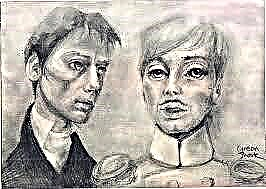

 Peter Pan
Peter Pan